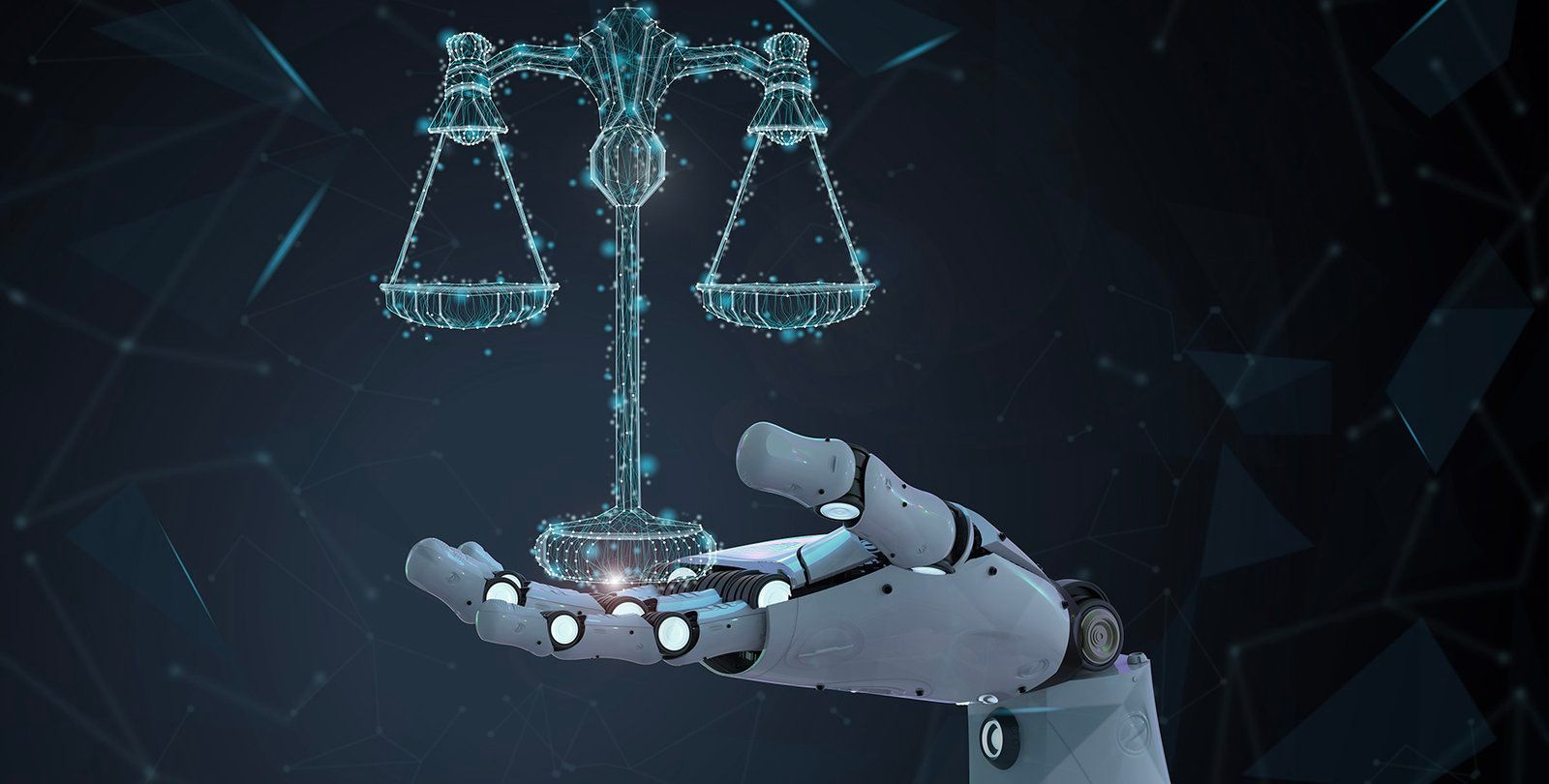The Ethics Behind AI in the Field of Video Game Development
by Waseem Ahmad on Invalid date

Until now, we've been diving deep into the various ways AI tools could be implemented to assist video game developers and companies. From text analysis and creating richer storylines to hiring talented developers and improving communication between development teams, AI can do anything and everything. Well, that's because it does! AI tools offer unprecedented opportunities for game developers and companies, revolutionizing game design, player experiences, and overall industry dynamics. However, these advancements come with significant ethical considerations that must be carefully addressed. That's why this week's article will delve into the ethical aspects surrounding the implementation of AI tools to assist video game developers and companies in the field of video game development, exploring fairness, inclusivity, player experience, privacy, and accountability.

Fairness and Inclusivity
Unsurprisingly, fairness and inclusivity are crucial aspects in the development of AI-driven tools for video games. The success of these tools heavily relies on the quality and diversity of the datasets they use for training. While everything may seem fine on the surface, often, biases and stereotypes present in these datasets can lead to unintended consequences, as AI algorithms may unknowingly perpetuate these biases in the virtual world.
Let's use character design as an example, as AI tools play a significant role in shaping the appearance and attributes of in-game avatars. Assuming that certain training data is biased or lacks representation from different cultural backgrounds, AI tools may inadvertently create characters that reinforce harmful stereotypes or fail to accurately reflect the diverse range of players in the gaming community. This could result in the generation of characters that adhere to traditional gender roles, racial stereotypes, or body image ideals, limiting players' identification with these avatars, alienating certain groups, and leading to potential lawsuits and decreased sales.

Privacy and Data Security
Perhaps the most considerable controversy surrounding the implementation of AI tools, privacy and data security are critical considerations in the realm of AI-driven game development. As these video games increasingly rely on AI algorithms to personalize experiences and enhance gameplay, they inevitably gather and analyze vast amounts of player data. However, with this great potential for customization and immersion comes the responsibility of game companies to protect player privacy and ensure the security of their data.
More specifically, one of the primary concerns in AI-driven gaming is the misuse or unauthorized access to player data. The sheer volume of information collected, ranging from in-game actions and preferences to personal identification details, presents a substantial risk if not handled appropriately. Game developers must establish robust data security measures to protect this sensitive information from cyberattacks, data breaches, and exploitation. To gain and maintain players' trust, game companies must adopt transparent data policies. For example, players should be informed about the types of data collected and the purposes for which it will be used, fostering a sense of control and understanding among players, which enables them to make informed decisions about sharing their information.
However, it is also essential to recognize that not all game companies may prioritize privacy and data security to the same extent. In some cases, pursuing profit and personalized gaming experiences might lead to questionable data practices. This underscores the importance of industry-wide standards and regulations that govern data privacy in AI-driven gaming and raises questions about whether governments should be involved in protecting players' data.

Addictive Mechanics
Alongside privacy concerns, addictive mechanics in AI-powered games have become another concern in the gaming industry. These mechanics are designed to maximize player engagement and retention, drawing players into a continuous gameplay cycle to keep them hooked. While player enjoyment and long-term loyalty are legitimate goals for game developers, the risk of inadvertently creating games that exploit players' addictive tendencies and encourage unhealthy behavior should not be overlooked.
One prevalent example of potentially addictive mechanics is the infamous "loot box" system. Simply put, loot boxes are virtual items that players can purchase or earn in-game, containing random rewards such as character skins, weapons, or other items. This element of chance and the allure of obtaining rare and valuable items make loot boxes enticing to players. However, the randomness of rewards can create a gambling-like experience, and for some players, this can lead to addictive loops as they chase the pleasure of obtaining sought-after items.
In fact, over the past few years, several individuals have claimed that loot boxes can be particularly harmful to vulnerable players, including minors and those with addictive tendencies. In some cases, they result in financial strain and negatively impact players' mental well-being. Additionally, some players may feel compelled to keep playing to "make the most" of their previous investments in loot boxes, further fueling addictive behaviors. Obviously, profits and player retention are essential goals for game companies. Still, they should recognize these risks and take proactive measures, such as implementing spending limits or cooldown periods, to ensure the responsible implementation of addictive mechanics and to encourage players to pause and reflect on their in-game purchases.

Job Displacement
The integration of AI tools in game development has undoubtedly transformed the industry, and along with its many benefits, it has also sparked concerns about potential job displacement for human developers. As AI algorithms become more advanced, they can take on tasks once performed exclusively by human developers, such as automating certain aspects of character design, level generation, or even story writing. The fear is that as AI takes on more responsibilities, human developers may find fewer opportunities and face challenges in job security.
However, it is essential to recognize that the impact of AI on job displacement in the gaming industry is not entirely one-sided. While AI can automate certain repetitive tasks, it can also be a powerful tool to empower developers and enhance their capabilities in other areas. For instance, AI tools can be utilized to analyze player behavior, gather valuable insights, and personalize gaming experiences to a previously impossible degree. By leveraging AI tools, developers can better understand player preferences, identify potential issues, and create more engaging and immersive games tailored to their audience. Moreover, AI can increase creativity and innovation in game development. By automating mundane tasks, developers can redirect their time and energy toward more creative game design, storytelling, and world-building aspects.
Essentially, to address concerns about job displacement, game companies should take a proactive approach and invest in reskilling and upskilling programs for their employees. By offering training in AI technologies and other relevant skills, developers can adapt to the evolving landscape and find new opportunities within the industry. This reskilling approach can also lead to the emergence of hybrid roles, where developers combine their creative expertise with AI knowledge to create groundbreaking gaming experiences. Furthermore, rather than viewing AI as a direct replacement for human talent, game developers should embrace AI as a complementary tool to enhance creativity and productivity. AI can serve as an aid in the game development process, handling repetitive tasks and providing valuable insights. At the same time, human developers bring their unique perspectives, creativity, and emotional intelligence to the table.

Regulation and Accountability
Last but most certainly not least, AI can be instrumental in detecting and preventing cheating in online multiplayer games. However, implementing anti-cheat AI systems requires careful consideration to avoid false positives and unfair player punishments, which can ruin the gaming experience for everyday players. Thus, game companies must continuously fine-tune their AI systems to balance maintaining fair play and respecting players' privacy and autonomy.
Suppose an innocent player were to be punished. In that case, game companies should be accountable for the actions and decisions made by their AI systems, and government bodies, industry organizations, and stakeholders should collaborate to establish ethical frameworks and standards for AI implementation in video game development. This allows companies to navigate ethical challenges while simultaneously harnessing AI's potential for positive impact.

Conclusion
The integration of AI tools in video game development offers vast opportunities for innovation and enhancement of player experiences. However, it also presents significant ethical considerations that require careful attention. If game developers and video game companies are able to properly harness the power of AI, prioritizing fairness, inclusivity, player experience, and privacy, they can ensure AI is a force for good in the gaming industry. If you're interested in learning more about how AI tools can be used in video game development, consider checking out some of my other articles and using some of my simple but powerful AI tools!